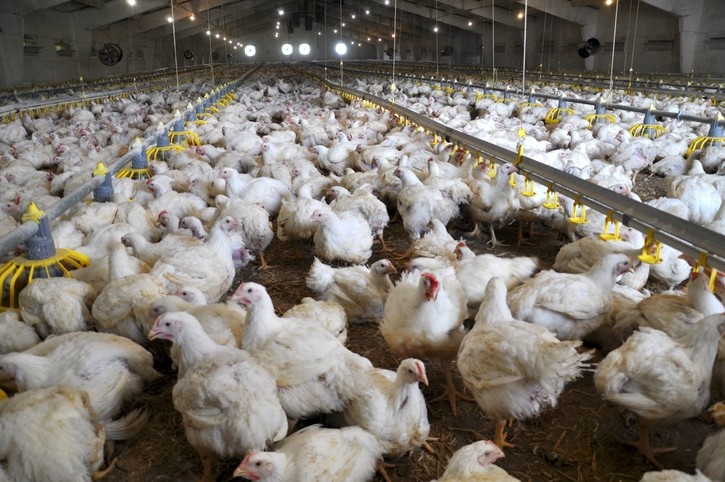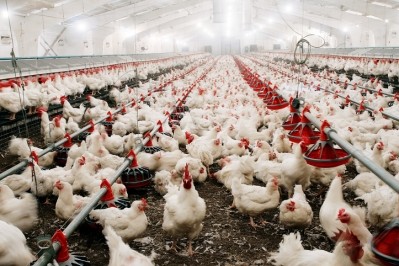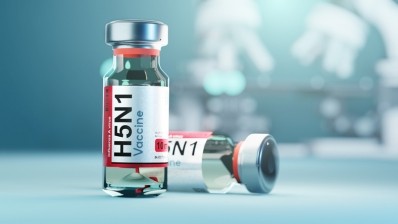Lallemand champions use of probiotics and competitive exclusion to support gut health of broilers in coccidiosis challenge

Coccidiosis, which is a multi-factorial disease, remains a major threat for poultry production, and leads to economic losses. It is caused by protozoan parasites of the genus Eimeria. In poultry, Eimeria affect the intestine making the bird prone to other diseases such as necrotic enteritis; the parasites reduce the ability of the intestine to absorb nutrients.
Anticoccidial drugs have been intensively used to control this parasitic disease in broilers, but there are increasing reports of the emergence of Eimeria strains resistant to some of those drugs; meanwhile, multiple poultry producers strive to address consumer demand for antibiotic-free production.
And while live coccidiosis vaccines are gaining ground, numerous publications have reported that vaccination can have negative impacts on zootechnical performance.
Lallemand has been actively researching ways to support poultry producers in relation to such disease challenges, using microbial modulation strategies: alone or in constructive interaction with other approaches like vaccines.
At the upcoming XXII Congress of the World Veterinary Poultry Association (WVPA), in Verona in Italy, the company is set to present the results of a pilot study conducted to evaluate the early application of its competitive exclusion product (trade name: Aviguard) to mitigate the negative effect of a coccidiosis vaccine on broiler performance.
The study, said the supplier, confirmed that vaccination impaired growth performance as measured by body weight at days 28 and 35, feed conversion rate and average daily gain. The early application of the competitive exclusion product allowed broilers to maintain zootechnical performance after vaccination against coccidiosis and minimized the risk of intestinal lesions induced by coccidiosis in vaccinated birds, a known side effect of such vaccination. In addition, the competitive exclusion product did not alter the mode of action of the live vaccine, said the developer.
Aviguard is derived from the gut microbiota of healthy poultry; its mode of action is competitive exclusion whereby beneficial bacteria colonize the host’s gut and exclude potential pathogens, according to Audrey Sacy, poultry applications manager, Lallemand.
Competitive exclusion can shape the gut microbiota, by creating a favorable physiological environment for beneficial bacteria and by reducing the possibility of opportunistic bacteria to develop. “Another explanation is that modulation of the inflammation in the gut would minimize the diversion of nutrients towards an inflammatory response, to the benefit of performance.”
The association of a live vaccine and a competitive exclusion approach has already been positively evaluated for Salmonella, said Sacy.
New probiotic strain
The company has also been investigating the impact of a new probiotic strain, Bacillus pumilus NCIMB 30362 (EffiXience), in the context of a coccidiosis challenge.
Lallemand thoroughly screened its Aquapharm bank of strains of marine origin to select Bacillus pumilus; the probiotic is not yet registered in EU, Sacy told FeedNavigator.
The strain shows consistent benefits in terms of gut health and feed efficiency, which ultimately will translate into in lower production costs, said the poultry specialist.
“The benefits of this novel Bacillus strain have been documented in vitro, showing its capacity to produce a prominent level of useful enzymes such as lipases and proteases. Those enzymatic activities partly support EffiXience’s mode of action and results: breaking down lipids and proteins, significantly enhancing fats and nitrogen digestibility, along with feed efficiency.”
In terms of in vitro studies, different antagonist tests demonstrated the strain can inhibit the growth of key pathogenic strains such as Clostridium perfringens, explained Sacy.
In vivo trials performed in a recognized research facility also showed the strain can reduce C. perfringens and E coli populations in the gut intestinal tract and in the various digestive organs screened as well. In addition, proteobacteria in the ileum were significantly decreased with the probiotic, she said.
Two other trials confirmed that the strain boosts mucus production, which constitutes a physical barrier against pathogen colonization of the intestinal brush border.
At this month's Poultry Science Association (PSA) annual meeting in Philadelphia, the company presented on further explorative work done on this probiotic in relation to its effect on broiler gut health when birds are subject to a coccidiosis challenge.
The study indicated that the probiotic mitigated the negative effects of coccidiosis in broilers by limiting the severity of intestinal and liver lesions score as well as by improving welfare scores.
Coccidiosis as an intestinal disease caused by distinct species of Eimeria parasites damages the host’s intestinal system. Modern broilers are hyper performing animals, but recent studies have proved their heightened sensitivity to pathogens, which can lead to acute, then chronic gut inflammation, noted Sacy.
“Super performing birds are becoming less and less resilient and thus more sensitive to health challenges.
“The probiotic, Bacillus pumilus, demonstrated positive impacts on immunity, with improved host defenses against intracellular parasitism; the consequence was a reduction of typical intestinal damage linked to inflammatory responses induced by parasites,” she said.
In relation to the control of Enterococcus related diseases on-farm, Bacillus pumilus has also exhibited “antagonist effects” on E cecorum and E fecalis with clear growth inhibition in in vitro tests and benefits on farm, she added.
Industry has a growing awareness of the complex interactions between the host immune system, gut microbiota, the enteroendocrine system, and parasites, but knowledge gaps remain.
"Lallemand is committed to investing in studies aimed at getting an even better understanding of the ‘host–parasite’ interactions in avian coccidiosis, to fine-tune its protocols and deliver even stronger benefits," said Sacy.














